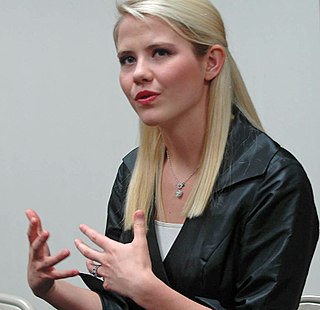A Quote by David Einhorn
We try not to have many investing 'rules,' but there is one that has served us well: If we decide we were wrong about something, in terms of why we did it, we exit, period.
Related Quotes
So many times, I will have people tell me what I did when I was younger. There's so much being written [about] the early Beatles period, and even pre-Beatles period. And people will say, "Oh, he did that because that, and that happened because of that." And I'll be reading and think, "Well, that didn't happen" and, "That's not why I did that." Like anyone's history, you remember what went down better than people who weren't there.
I spent most of my teen years trying to figure out the rules of life, theories for why things happened, why people behaved as they did, and mostly I came to the conclusion that either there were no rules, or the rules sucked. Reading science fiction wasn't about imagining myself into some more exciting life filled with adventure, it was about finding a world where things worked the way I wanted them to.
Most people do not realize that as they continue to find things to complain about, they disallow their own physical well-being. Many do not realize that before they were complaining about an aching body or a chronic disease, they were complaining about many other things first. It does not matter if the object of your complaint is about someone you are angry with, behavior in others that you believe is wrong, or something wrong with your own physical body. Complaining is complaining, and it disallows improvement.
If, as the dowager had said, we are nothing but gene carriers, why do so many of us have to lead such strangely shaped lives? Wouldn't our genetic purpose-to transmit DNA-be served just as well if we lived simple lives, not bothering our heads with a lot of extraneous thoughts, devoted entirely to preserving life and procreating? Did it benefit the genes in any way for us to lead such intricately warped, even bizarre, lives?
Why can't we have a voice? What's the difference between an athlete having millions or Donald Trump? Every time a politician talks, they talk about what's wrong with America. Well, he's an athlete who is also saying something is wrong with America. Why is it that when he talks, people say, 'How can he talk about oppression and make millions?' Well, Trump is talking about it. Hillary Clinton is talking about it. And they have more money than most athletes.
My own view is simply that there are some very basic rules; very simple rules that apply to all writing in a way, which is: don't lie; if you're wrong, correct; do not misrepresent; and try and keep oneself intellectually honest - which means, as a writer, the very difficult task in public of admitting you were wrong.
How did I get into the world? Why was I not asked about it and why was I not informed of the rules and regulations but just thrust into the ranks as if I had been bought by a peddling shanghaier of human beings? How did I get involved in this big enterprise called actuality? Why should I be involved? Isn't it a matter of choice? And if I am compelled to be involved, where is the manager—I have something to say about this. Is there no manager? To whom shall I make my complaint?



































